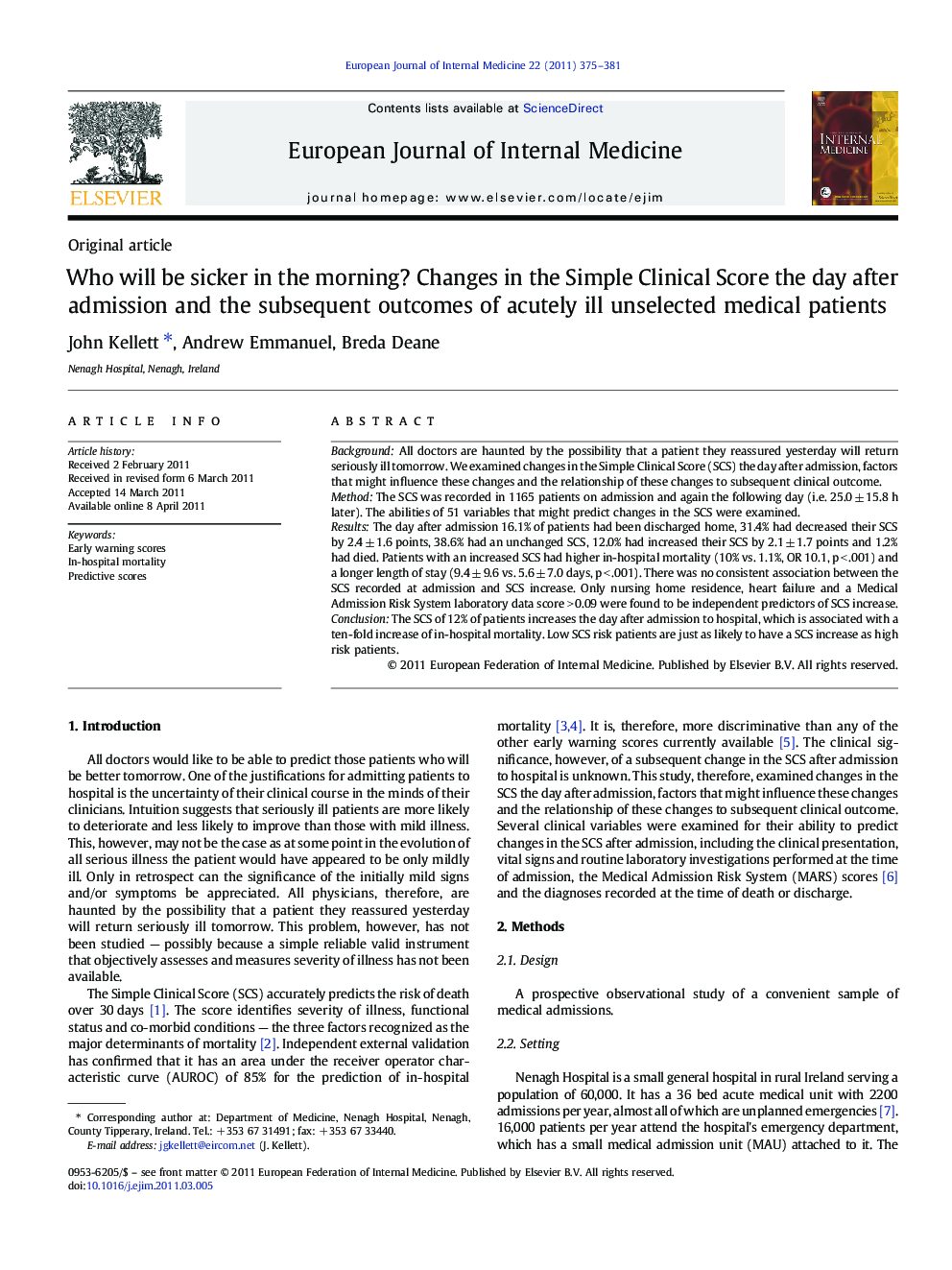| Article ID | Journal | Published Year | Pages | File Type |
|---|---|---|---|---|
| 3467464 | European Journal of Internal Medicine | 2011 | 7 Pages |
BackgroundAll doctors are haunted by the possibility that a patient they reassured yesterday will return seriously ill tomorrow. We examined changes in the Simple Clinical Score (SCS) the day after admission, factors that might influence these changes and the relationship of these changes to subsequent clinical outcome.MethodThe SCS was recorded in 1165 patients on admission and again the following day (i.e. 25.0 ± 15.8 h later). The abilities of 51 variables that might predict changes in the SCS were examined.ResultsThe day after admission 16.1% of patients had been discharged home, 31.4% had decreased their SCS by 2.4 ± 1.6 points, 38.6% had an unchanged SCS, 12.0% had increased their SCS by 2.1 ± 1.7 points and 1.2% had died. Patients with an increased SCS had higher in-hospital mortality (10% vs. 1.1%, OR 10.1, p < .001) and a longer length of stay (9.4 ± 9.6 vs. 5.6 ± 7.0 days, p < .001). There was no consistent association between the SCS recorded at admission and SCS increase. Only nursing home residence, heart failure and a Medical Admission Risk System laboratory data score > 0.09 were found to be independent predictors of SCS increase.ConclusionThe SCS of 12% of patients increases the day after admission to hospital, which is associated with a ten-fold increase of in-hospital mortality. Low SCS risk patients are just as likely to have a SCS increase as high risk patients.
